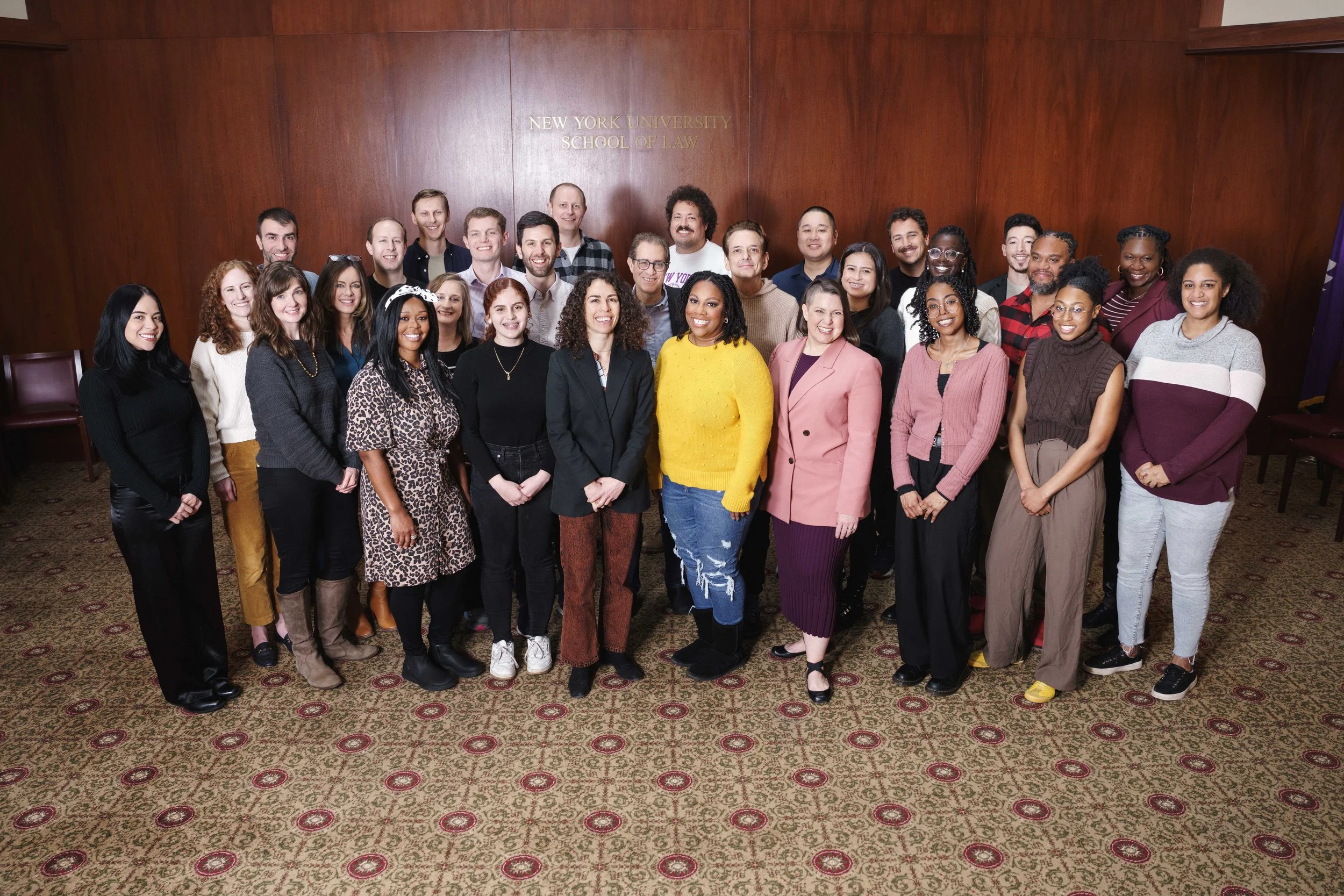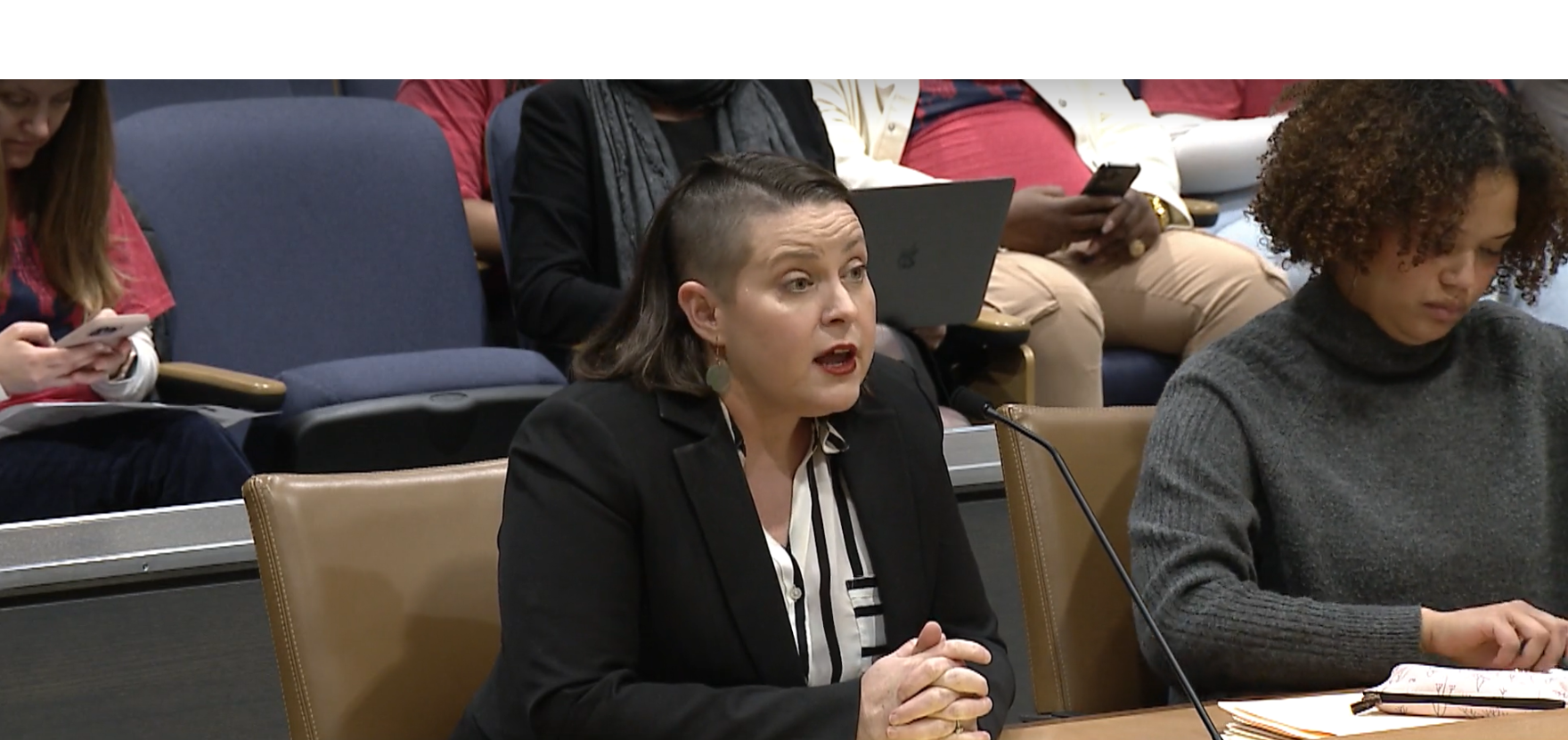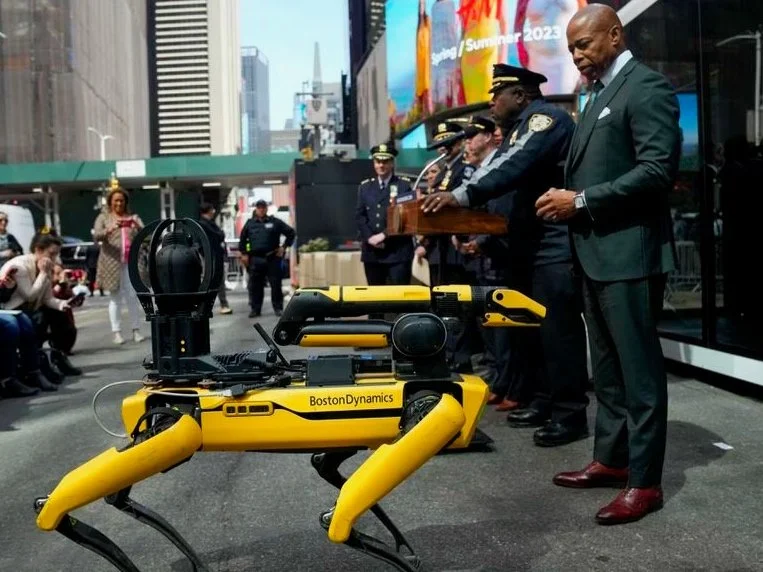Recent Announcements
For more news from the Policing Project, follow us on Twitter @PolicingProject
Protesters that successfully halted the construction of a $10-billion natural gas pipeline and terminal are asking an appeals court to reinstate their lawsuit challenging the state’s unauthorized use of its TITAN Fusion Center to investigate Oregon residents, including to surveil First Amendment-protected activity.
The Eleventh Circuit Court of Appeals ruled that André and English plausibly alleged violations of their Fourth Amendment rights and that their lawsuit against Clayton County can proceed in the District Court.
Following the 2024 election, many feared that police reform was all but dead. 2025, however proved our most fruitful year yet, with four bills we publicly supported being passed and signed into law.
The Policing Project condemns the Trump administration’s deployment of the United States military – including the National Guard and U.S. Marines – in the streets of Los Angeles. The use of the military to replace local law enforcement in responding to protests is both anti-democratic and dangerous for public safety.
Last week, more than 250 community safety experts, practitioners, funders, and government officials attended the Advancing the Field of Alternative Response 2025 Convening held in New York City
The Policing Project at NYU Law is launching the 12 Million Calls Initiative in partnership with municipalities of all sizes across the country to divert 5 percent of the country’s 911 calls to non-police alternative responders.
The Policing Project at NYU School of Law welcomes today’s unanimous Supreme Court decision rejecting the “moment-of-the-threat doctrine” in evaluating claims of excessive force by law enforcement. The Policing Project filed a brief in the case on behalf of nearly two dozen law enforcement leaders, urging the Supreme Court to reach the decision it did.
The Policing Project and the Chicago Neighborhood Policing Initative have released a new step-by-step guide for implementing the Neighborhood Policing Initiative, based on lessons learned in partnership with local communities and the Chicago Police Department.
Last week, Policing Project founder and faculty director Barry Friedman delivered oral argument in our case André v. Clayton County to a panel of judges at the Eleventh Circuit Court of Appeals in Atlanta, Georgia.
The new Traffic Safety For All (TS4A) coalition will coordinate and educate stakeholders on the importance of limiting low-level traffic stops and allowing law enforcement to focus on addressing offenses that are central to causing crashes and traffic fatalities.
The Policing Project applauds this important policy change, which comes months after we called on DOJ and the DEA to end Operation Jetway, citing the long-documented history of racial profiling associated with it.
Read the amicus brief we filed in Supreme Court case Barnes v. Felix urging the Court to reject the Fifth Circuit’s “moment of the threat” doctrine and instead use a “totality of the circumstances” approach to evaluate claims of excessive force under the Fourth Amendment.
The Policing Project has released a report finding that Chicago lacks a strong community policing program and expects police officers to perform too many duties that take them away from their mission of addressing serious crime.
Reporting by Oregon's Rogue Valley Times took a close look at two lawsuits challenging domestic surveillance by law enforcement in the state, including our case on behalf of social justice, indigenous rights, and environmental advocates.
This summer, we’re reflecting on a year in which – despite challenging political environments across the country – we were able to make real strides in legislatures across the country and build off last year’s successes.
The profoundly disturbing police killing of Sonya Massey in her own home is a complete failure of policing and of humanity.
Just the latest incident of a police officer killing an unarmed Black person, it is rightly raising fundamental questions about policing in America. It’s also, however, raising questions about whether Sean Grayson – the sheriff’s deputy who killed Massey – should have even been allowed to serve as a police officer in the first place.
The Policing Project at New York University School of Law has published an in-depth study on community safety and non-police alternative first response in San Francisco, the third report in a series on public safety innovations across the country.
Last month, the White House Office of Management and Budget (OMB) issued a landmark policy putting in place long-overdue requirements on how federal agencies can – and cannot – use artificial intelligence.
Here are our main takeaways on what it means for law enforcement.
Earlier this month, we appeared before the US Commission on Civil Rights – alongside experts from government, law enforcement, and other advocacy groups – to discuss the civil rights implications of federal law enforcement’s unregulated use of facial recognition technology (FRT).
Last month, Chicago Mayor Brandon Johnson announced his support for removing police officers from the city’s public schools. His administration should approach this change as an opportunity to invest in a proven strategy for supporting students: trained mental health professionals.
The Policing Project at NYU School of Law, the global law firm Jones Day, the law firm Lawrence & Bundy, and Canfield Law LLC have filed an appeal to the Eleventh Circuit Court of Appeals challenging the dismissal of a civil rights lawsuit against Clayton County police. A range of groups and individuals, including law enforcement officials; Tyler Perry, Jamie Foxx, and other prominent Black actors; empirical scholars; Cato Institute; NAACP Legal Defense Fund; Institute for Justice; ACLU of Georgia, have filed amicus briefs in support of the appeal.
The Policing Project at NYU School of Law has published an in-depth study on community safety and alternative first response in Tucson, the second report in a series on public safety innovations across the country.
This week, we’re highlighting testimony we provided to the New York City Council on how the NYPD has skirted democratic accountability in deploying intrusive policing technologies.
The city of Las Vegas Department of Public Safety today announced that it – in partnership with the Center for Crime and Justice Policy at University of Nevada, Las Vegas and the Policing Project at NYU School of Law – has received an $800,000 federal grant to be evaluated by the Policing Project’s new Sound, Accountable, Just, and Effective (SAJE) Policing Assessment tool.



























